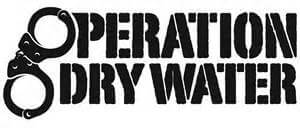Boating under the influence laws are strictly enforced, and are especially pertinent the summer months.
Boating and Drinking Don’t Mix
What you normally don’t think of, as part of this picture, is the sounds of handcuffs, the smell of a jail cell, or the visual of red and blue lights rolling up behind you. Sorry to ruin the picture, but I gotta warn you. Its not all fun in the sun out their on the waters.
Law enforcement has made it a new priority to enforce boating under the influence with the same fervor and crack down as they have driving under the influence. That’s right, the same tough DUI enforcement that takes place on the roads will now hit the water. Welcome to Operation Dry Water.
Operation Dry Water
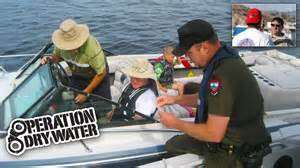 Operation Dry Water launched in 2009 by the National Association of State Boating Law Administrators with the U. S. Coast Guard, with the goal to bring awareness and education to recreational boaters about the dangers of alcohol and drug use while out on the water. According to the U.S. Coast Guard, alcohol is the primary contributing factor in recreational boating fatalities.
Operation Dry Water launched in 2009 by the National Association of State Boating Law Administrators with the U. S. Coast Guard, with the goal to bring awareness and education to recreational boaters about the dangers of alcohol and drug use while out on the water. According to the U.S. Coast Guard, alcohol is the primary contributing factor in recreational boating fatalities.
While not mandated, law enforcement agencies have chosen to participate in Operation Dry Water, lending credibility to the concern that Boating Under the Influence (BUI) is a real problem. Here in Los Angeles, the Sheriffs Department at Castaic/Pyramid Lakes and Marina del Rey; the Los Angeles Port Police; and U.S. Coast Guard are participating in the program. June 26 to 28, 2015 has been designated as the Operation Dry Water heightened enforcement weekend. But know law enforcement says outreach and awareness of BUI is year-round and added enforcement will include holiday weekends. So think of all the attention that normally accompanies DUI checkpoints on the road, that same idea has rolled out on water.
Boating Under the Influence Laws
Just so we are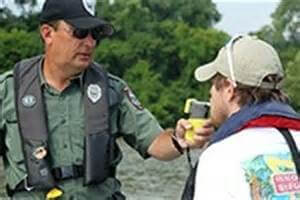 all clear: it is illegal to Boat Under the Influence. The California Harbors and Navigation Code is the law on the water. It is not as stringent as the law on the land and often people get confused. The one break you get on water that you don’t get on land is that open containers are fair game. But make no mistake about it, operating a boat under the influence is just as illegal as driving a vehicle under the influence of drugs or alcohol.
all clear: it is illegal to Boat Under the Influence. The California Harbors and Navigation Code is the law on the water. It is not as stringent as the law on the land and often people get confused. The one break you get on water that you don’t get on land is that open containers are fair game. But make no mistake about it, operating a boat under the influence is just as illegal as driving a vehicle under the influence of drugs or alcohol.
The law recognizes that boating under the influence can be just as and even many times more dangerous than driving under the influence of drugs or alcohol. People drive every day and are well practiced at it. When it comes to boating however, many people might drive a boat a couple times a year. Such a person is far from an expert boat driver. For that same person to be drunk and boating is extremely dangerous.
Roads vs. Water
Another important distinction between driving and boating is that driving takes place most commonly on roads that are fairly wide and stable. Boating often takes place out in the ocean where the tides and winds can change in an instant. If a person is under the influence, they will not be fast enough to respond properly to the changing circumstances. In fact, statistics from the United States Coast Guard show that in boating deaths involving alcohol use, over half the victims capsized their own boats and/or fell overboard.
Furthermore, boats, by their very nature, are inferior to cars in their ability to steer and to brake. Given that the typical boat operator spends only a few days a year on the water, they are typically not expert at handling the different problems that boaters encounter from time to time. When the hot sun and alcohol have had their say, an impaired person at the helm of a boat may be in bad shape and will be putting everyone aboard and nearby in danger.
Rules & Regulations
Under the Harbors and Navigation Code there are several laws that regulate boating and drinking. The boating under the influence laws are very similar to the driving and drinking laws. Harbors and Navigation Code 655b states that you may not operate a
- boat,
- water skis,
- an aquaplane, or
- any similar equipment (such as a jet ski),
while under the influence of alcohol and/or drugs.
Being under the influence is defined as having a blood alcohol content (BAC) of .08 percent for a recreational vessel and .04 percent for a commercial craft. The statute sets a zero-tolerance policy for watercraft such as aquaplanes and water skis and for boaters under the age of 21. The zero-tolerance policy means that any trace of alcohol is illegal when operating these types of watercraft.
BUI Penalties
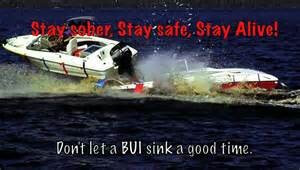 DUI and BUI cases are similar in prosecution. Additionally, while the penalties vary, it is only a slight variation. Under the BUI laws, you can still face fines, possible jail time and alcohol education classes. The one distinction is in the length of time priors can be used to enhance your sentence. Instead of the priorability time being ten years, as in DUI cases, priors only enhance a BUI when the DUI or BUI was committed within the last seven years prior to the offense.
DUI and BUI cases are similar in prosecution. Additionally, while the penalties vary, it is only a slight variation. Under the BUI laws, you can still face fines, possible jail time and alcohol education classes. The one distinction is in the length of time priors can be used to enhance your sentence. Instead of the priorability time being ten years, as in DUI cases, priors only enhance a BUI when the DUI or BUI was committed within the last seven years prior to the offense.
Also, unlike a DUI conviction, the California DMV will not revoke or suspend your driver’s license following a BUI conviction.
Fighting a BUI
It is ‘per se’ under the influence if you are operating a watercraft in California and your blood-alcohol content is above a .08%. Keep in mind, you can still receive a BUI dependent on the officer in charge. An officer’s determination that you are “under the influence” is very important. This is true even if your actual blood alcohol content is lower than that percentage.
Let’s assume the scenario above when an officer comes on board for that safety check, the next thing you know he smells alcohol on your breath, decides to do field sobriety tests, and boom next thing you know he determines that you impaired and unable to operate the boat. You may be at risk for arrest based on California’s boating under the influence laws.
Defensible Cases
These cases can be defensible. Unlike driving patterns, boating behavior (i.e. straggling lanes, speeding, are harder to quantify and qualify, thus giving the boater more margin of error on a boat than in a car. And what about those objective signs? If someone has a red face and crazy hair, driving a vehicle, it’s easy to apply assumptions. This person is drunk! However, that same argument is easily explainable for the person who has been in the sun and wind all day. Isn’t everyone unkempt on a boat? Unsteady gait? Of course! You have been walking on water all day!
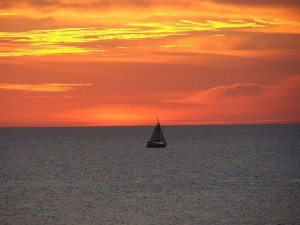 There are many confusing variables involved in this type of case. Even a seasoned law enforcement officer may mistake light drinking for violation of boating under the influence laws (BUI). Your case may have some of these conditions, or any of the many others that lead to unwarranted BUI arrests. You could find yourself in a position of too much fun in the sun or wrongfully facing BUI charges. If so, you should consult with a crime attorney. A qualified DUI attorney can use the particulars of California boating under the influence laws to help you.
There are many confusing variables involved in this type of case. Even a seasoned law enforcement officer may mistake light drinking for violation of boating under the influence laws (BUI). Your case may have some of these conditions, or any of the many others that lead to unwarranted BUI arrests. You could find yourself in a position of too much fun in the sun or wrongfully facing BUI charges. If so, you should consult with a crime attorney. A qualified DUI attorney can use the particulars of California boating under the influence laws to help you.
Summer is a great time to get outside and enjoy all that we love about Southern California. Pack your sunscreen, wear a hat, and choose a designated boater.



